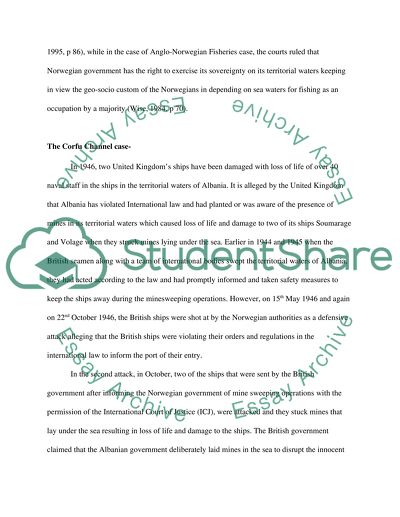Cite this document
(Public Shipping Law: The Cases of the Corfu Channel and Case Study, n.d.)
Public Shipping Law: The Cases of the Corfu Channel and Case Study. https://studentshare.org/law/1516637-public-shipping-marine-pollution-and-aspects-of-marine-environment-cases
Public Shipping Law: The Cases of the Corfu Channel and Case Study. https://studentshare.org/law/1516637-public-shipping-marine-pollution-and-aspects-of-marine-environment-cases
(Public Shipping Law: The Cases of the Corfu Channel and Case Study)
Public Shipping Law: The Cases of the Corfu Channel and Case Study. https://studentshare.org/law/1516637-public-shipping-marine-pollution-and-aspects-of-marine-environment-cases.
Public Shipping Law: The Cases of the Corfu Channel and Case Study. https://studentshare.org/law/1516637-public-shipping-marine-pollution-and-aspects-of-marine-environment-cases.
“Public Shipping Law: The Cases of the Corfu Channel and Case Study”. https://studentshare.org/law/1516637-public-shipping-marine-pollution-and-aspects-of-marine-environment-cases.


